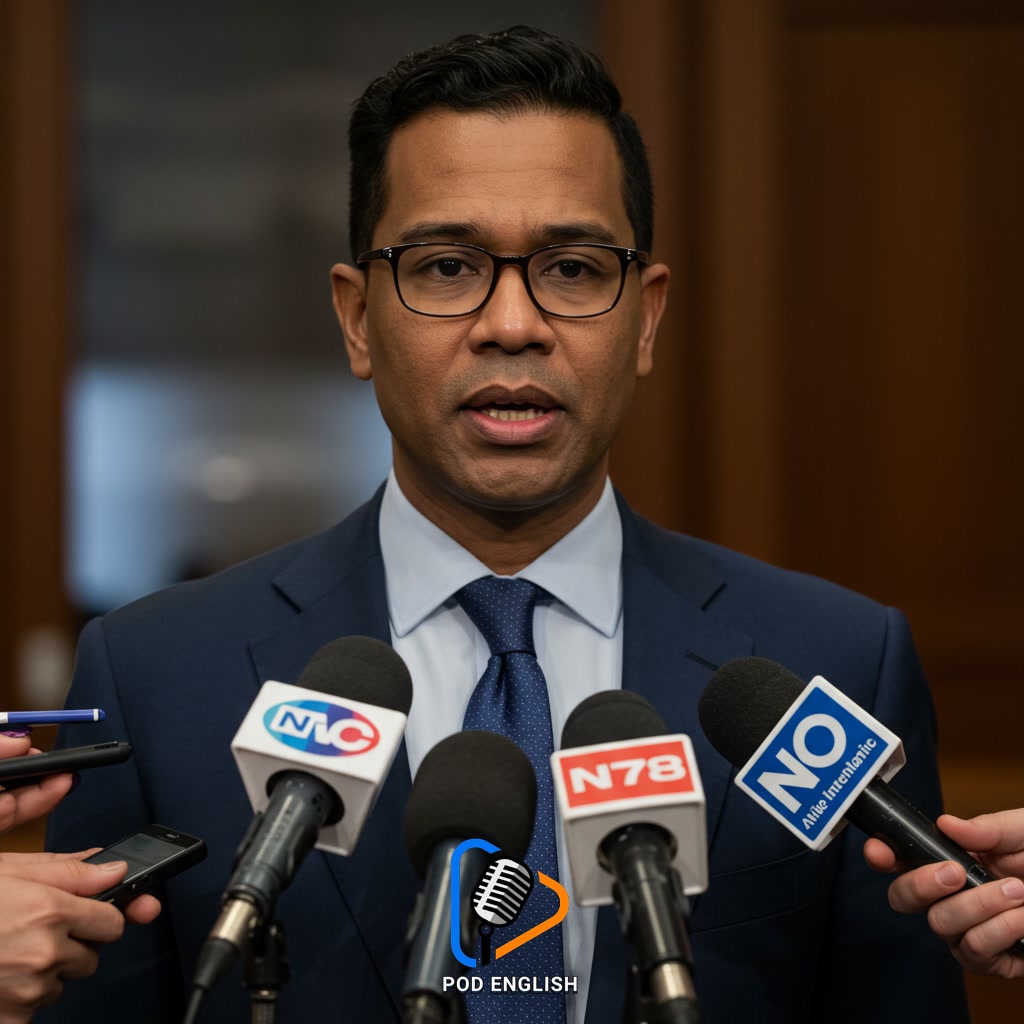Learn English
Essential English Skills for PR and Media Professionals

Developing strong English skills is crucial for professionals in Public Relations and Media to communicate effectively. This encompasses mastering written communication for crafting impactful press releases and articles, alongside honing verbal abilities for interviews and presentations. Cultivating these language proficiencies enables greater reach and influence in a globalized media landscape, making focused effort on acquiring these capabilities essential for career advancement.
Table of Contents
- Section 1: Why English is Essential for Modern PR and Media
- Section 2: Core English Language Skills for Professionals
- Section 3: Mastering Written English for PR and Media Communication
- Section 4: Developing Strong Oral English Skills for Media Interactions
- Section 5: Key Vocabulary and Jargon in the PR and Media Landscape
- Section 6: Effective Strategies for Learning and Improving English Skills
- Section 7: Leveraging English Proficiency for Career Advancement
Section 1: Why English is Essential for Modern PR and Media
English has become the indispensable language of global communication, making it critically important for professionals in modern Public Relations and Media. The nature of these fields is increasingly international; PR practitioners often need to engage with global stakeholders and media, while media professionals access and disseminate information across borders. Proficiency in English allows practitioners to effectively reach a wider, international audience, build relationships with media outlets and influencers worldwide, and access a vast pool of global news and research. It is essential for crafting international press releases, participating in cross-border campaigns, and understanding global media trends. Mastering English skills therefore unlocks significant opportunities and is fundamental for competing successfully in today’s interconnected media landscape.

Section 2: Core English Language Skills for Professionals
Building upon the understanding that English is essential, let’s delve into the core language skills crucial for PR and Media professionals. Firstly, strong written communication is paramount. This involves mastering grammar, vocabulary, and sentence structure to craft compelling press releases, articles, social media posts, and internal communications that are clear, concise, and persuasive. Equally vital is verbal fluency. Professionals must be able to articulate ideas confidently in interviews, presentations, meetings, and crisis communication scenarios. Effective listening and reading comprehension are also fundamental, enabling professionals to understand media landscapes, client needs, feedback, and research accurately. Developing proficiency in these integrated skills forms the bedrock for successful communication in these dynamic fields.

Section 3: Mastering Written English for PR and Media Communication
Building upon the understanding that English is essential, let’s delve into the core language skills crucial for PR and Media professionals. Firstly, strong written communication is paramount. This involves mastering the art of crafting clear, concise, and compelling content tailored for various platforms, from formal press releases and insightful articles to engaging social media posts and professional emails. Accuracy in grammar, spelling, and punctuation is non-negotiable, as errors can severely undermine credibility. Developing a strong vocabulary specific to the industry and understanding how to adapt tone and style for different audiences are also vital. Effective written English ensures your message is understood correctly and impactful, forming the bedrock of successful PR and media outreach.

Section 4: Developing Strong Oral English Skills for Media Interactions
Building upon strong written foundations, developing robust oral English skills is equally critical for professionals in PR and Media. This involves mastering clear and confident spoken communication for various interactions, such as giving interviews to journalists, delivering presentations, participating in panel discussions, or speaking at press conferences. Key aspects include pronunciation, intonation, fluency, and the ability to think on your feet and respond articulately under pressure. Practicing active listening and adapting your language style to different audiences and media formats are also vital. Cultivating these verbal proficiencies allows you to represent your organization effectively, build rapport, and manage media narratives successfully in English-speaking environments.

Section 5: Key Vocabulary and Jargon in the PR and Media Landscape
Mastering the specific language used within the Public Relations and Media industries is fundamental. Beyond general English proficiency, understanding and correctly employing key vocabulary and jargon are essential for credibility and effective communication. This includes terms related to press releases (e.g., embargo, boilerplate), media relations (e.g., pitch, journalist, outlet), internal communication (e.g., intranet, memo), crisis management (e.g., statement, spokesperson), and digital media (e.g., SEO, engagement, analytics). Becoming fluent in this specialized terminology allows professionals to navigate conversations with colleagues, clients, and the media confidently and precisely, ensuring messages are understood accurately within the professional context.

Section 6: Effective Strategies for Learning and Improving English Skills
Following the foundational understanding of industry-specific language, actively implementing effective learning strategies is paramount for continuous improvement. Consistent practice is key, integrating English into your daily routine through reading industry news outlets, listening to relevant podcasts, and actively engaging in online communities. Develop a structured approach to vocabulary acquisition, perhaps using flashcards or apps focused on spaced repetition, and practice incorporating new words naturally into your writing and speaking. Seek opportunities for active communication, whether through language exchange partners, online tutors, or participating in relevant webinars and conferences. Regularly reviewing your progress and seeking feedback on your written work and presentations will help identify areas needing further attention, ensuring steady growth in your English proficiency essential for a thriving PR or media career.

Section 7: Leveraging English Proficiency for Career Advancement
Building upon effective learning strategies, harnessing robust English skills directly translates into significant career acceleration within the dynamic fields of Public Relations and Media. Proficiency in English allows professionals to confidently engage with international clients, collaborate on global campaigns, and access a wider array of job opportunities. Mastering complex industry terminology and nuanced communication in English enables persuasive writing for global press releases and impactful verbal delivery in international interviews or presentations. This enhanced capability not only increases visibility and credibility but also expands professional networks across borders, positioning individuals for leadership roles and greater influence in a globally connected media landscape. Therefore, actively leveraging English proficiency is a critical factor in achieving sustained career growth.














